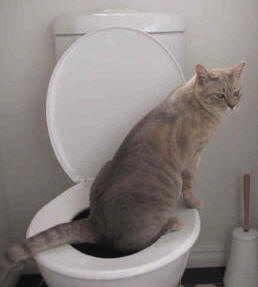Reasons Flushing Cat Poop Down Your Toilet Isn't a Good Idea - Advice for Safer Disposal
Call TodayThis great article in the next paragraphs involving Can You Flush Cat Poop Down The Toilet? is especially attention-grabbing. Give it a try and draw your own personal assumptions.

Introduction
As feline owners, it's necessary to bear in mind exactly how we take care of our feline buddies' waste. While it may appear hassle-free to purge pet cat poop down the commode, this technique can have detrimental consequences for both the atmosphere and human wellness.
Environmental Impact
Purging pet cat poop presents unsafe microorganisms and parasites right into the water system, presenting a significant risk to marine ecosystems. These impurities can negatively influence aquatic life and compromise water top quality.
Wellness Risks
In addition to environmental issues, purging pet cat waste can also present wellness risks to humans. Feline feces might include Toxoplasma gondii, a bloodsucker that can trigger toxoplasmosis-- a possibly severe disease, specifically for expecting ladies and people with weakened immune systems.
Alternatives to Flushing
The good news is, there are much safer and much more accountable means to dispose of feline poop. Consider the following choices:
1. Scoop and Dispose in Trash
The most usual approach of disposing of cat poop is to scoop it right into a naturally degradable bag and toss it in the garbage. Be sure to utilize a dedicated clutter scoop and get rid of the waste quickly.
2. Use Biodegradable Litter
Go with eco-friendly cat litter made from products such as corn or wheat. These clutters are environmentally friendly and can be safely dealt with in the garbage.
3. Bury in the Yard
If you have a backyard, take into consideration hiding feline waste in a marked location far from vegetable gardens and water resources. Make sure to dig deep adequate to avoid contamination of groundwater.
4. Mount a Pet Waste Disposal System
Invest in a pet dog waste disposal system specifically designed for pet cat waste. These systems make use of enzymes to break down the waste, minimizing odor and environmental impact.
Conclusion
Responsible family pet ownership expands past supplying food and sanctuary-- it also involves proper waste management. By refraining from flushing cat poop down the bathroom and selecting alternate disposal methods, we can lessen our environmental footprint and safeguard human wellness.
Why You Should Never Flush Cat Poop Down the Toilet
A rose by any other name might smell as sweet, but not all poop is created equal. Toilets, and our sewage systems, are designed for human excrement, not animal waste. It might seem like it couldn’t hurt to toss cat feces into the loo, but it’s not a good idea to flush cat poop in the toilet.
First and foremost, assuming your cat uses a litter box, any waste is going to have litter on it. And even the smallest amount of litter can wreak havoc on plumbing.
Over time, small amounts build up, filling up your septic system. Most litter sold today is clumping; it is made from a type of clay that hardens when it gets wet. Ever tried to scrape old clumps from the bottom of a litter box? You know just how cement-hard it can get!
Now imagine just a small clump of that stuck in your pipes. A simple de-clogger like Drano isn’t going to cut it. And that means it’s going to cost you big time to fix it.
Parasitic Contamination
Believe it or not, your healthy kitty may be harboring a nasty parasite. Only cats excrete Toxoplasma in their feces. Yet it rarely causes serious health issues in the cats that are infected. Most people will be fine too if infected. Only pregnant women and people with compromised immune systems are at risk. (If you’ve ever heard how women who are expecting are excused from litter cleaning duty, Toxoplasma is why.)
But other animals may have a problem if infected with the parasite. And human water treatment systems aren’t designed to handle it. As a result, the systems don’t remove the parasite before discharging wastewater into local waterways. Fish, shellfish, and other marine life — otters in particular — are susceptible to toxoplasma. If exposed, most will end up with brain damage and many will die.
Depending on the species of fish, they may end up on someone’s fish hook and, ultimately on someone’s dinner plate. If that someone has a chronic illness, they’re at risk.
Skip the Toilet Training
We know there are folks out there who like to toilet train their cats. And we give them props, it takes a lot of work. But thanks to the toxoplasma, it’s not a good idea.

As a fervent person who reads about How to Dispose of Cat Poop and Litter Without Plastic Bags, I imagined sharing that piece of content was sensible. If you liked our blog post if you please do not forget to pass it around. Thank-you for going through it.
Call Today